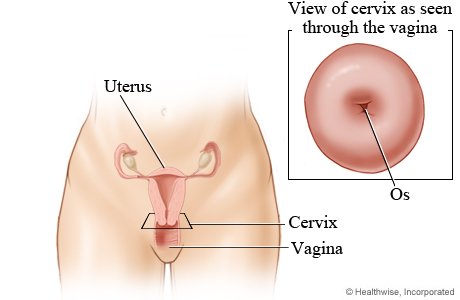Why It Is Done
Colposcopy is done to:
- Look at the cervix for problem areas when a Pap test was abnormal. If an area of abnormal tissue is found, a biopsy is often done.
- Check a sore or other problem (such as genital warts) found on or around the vagina and cervix.
- Follow up on abnormal areas seen on a previous colposcopy. It can also be done to see if treatment for a problem worked.
- Look at the cervix for problem areas if an HPV test shows a high-risk type of HPV.
How To Prepare
Tell your doctor if you:
- Are or might be pregnant. A blood or urine test may be done before the test to see if you are pregnant. Colposcopy is safe during pregnancy. If a cervical biopsy is needed during the test, the chance of any harm to the pregnancy (such as miscarriage) is very small. But you may have more bleeding from the biopsy. A colposcopy may be repeated about 6 weeks after your baby is born.
- Take any medicines.
- Are allergic to any medicines.
- Have had bleeding problems or take blood thinners. These include aspirin and warfarin (such as Coumadin).
- Have been treated for a vaginal, cervical, or pelvic infection.
